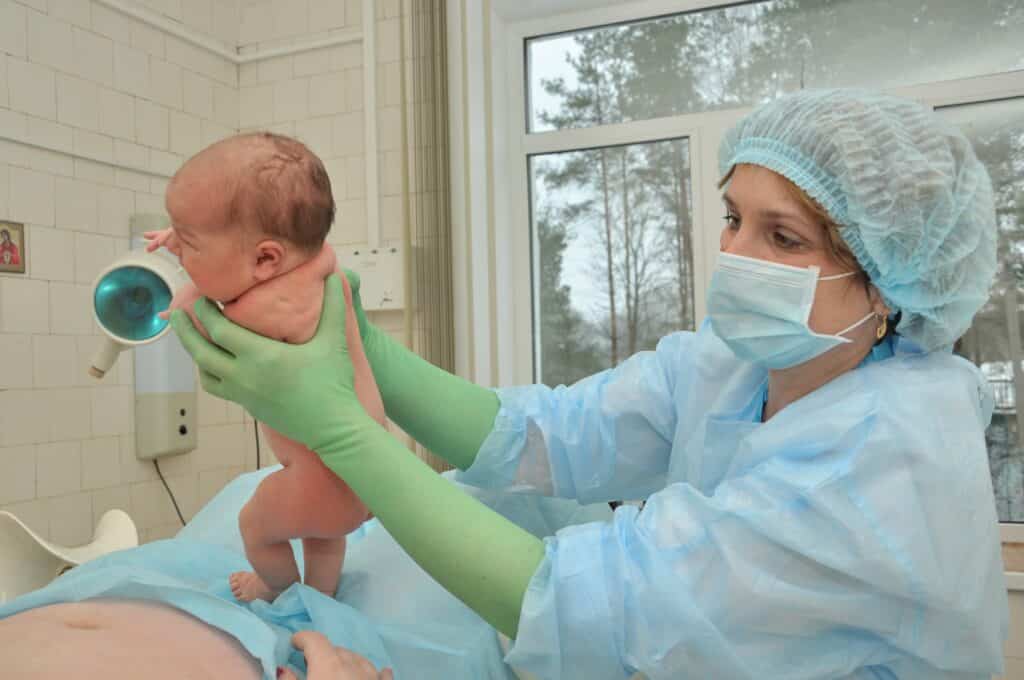 Whether you are a traditional healthcare working, such as a nurse or pediatrician, or you are non-clinical like a doula, continued training is important. With the new AAP breastfeeding recommendations, breastfeeding counselor training is an important certification to add to our skillsets.
Whether you are a traditional healthcare working, such as a nurse or pediatrician, or you are non-clinical like a doula, continued training is important. With the new AAP breastfeeding recommendations, breastfeeding counselor training is an important certification to add to our skillsets.
The AAP is now recommending more support for breastfeeding parents. They encourage pediatricians, childcare providers, birthing facilities, etc., to offer evidenced-based support.
One author of their new guidelines saying:
“The AAP views breastfeeding as a public health imperative and also as an equity issue,” said Lawrence Noble, MD, FAAP, FABM, IBCLC, co-author of the policy statement and technical report, which details the evidence that supports human milk feeding. “Pediatricians and other medical professionals can help mothers meet their intended goals for breastfeeding and provide care that is inclusive, equitable, and culturally sensitive.”
At the International Doula Institute, our Certified Breastfeeding Counselor training is designed for every level of professional. This includes nurses, pediatricians, and more.
What is a Certified Breastfeeding Counselor?
A Certified Breastfeeding Counselor is a lactation professional who completes a certification course including a final exam. This is a non-medical position, meaning they do not diagnose or treat medical conditions, nor do they practice medicine.
However, when you are a licensed healthcare provider, this additional certification can allow you to provide evidenced-based lactation support to your patients.
Rather than only telling a new parent their newborn is not transferring enough milk, one can aid in establishing a healthy latch. When parents ask questions about how to tell if baby is getting enough milk, one will be able to provide evidenced-based information.
What is Certified Breastfeeding Counseling Training?
The International Breastfeeding Institute’s CBC training information shares the following about their training to help you understand more:
“Our Level One Core Course – our Certified Breastfeeding Counselor Course -will allow you to develop the skills necessary to help a birther and baby obtain all the benefits of breastfeeding and to navigate many of the challenges they may face.”
Upon completing our comprehensive certified breastfeeding counselor training, you will possess the skills necessary to:
- Provide prenatal education about breastfeeding initiation and preparation
- Assist in establishing early breastfeeding
- Recognize breastfeeding difficulties which need to be referred to an IBCLC, physician, etc.
- Provide support, education, and guidance on ongoing breastfeeding norms and difficulties
- Educate and support in pumping, planning for back to work and school, introducing bottles, etc.
- Provide education and support regarding typical aspects of weaning
- And more!
Once one completes their certification with our level one core course, you will be skilled in doing all the above. With these skills, healthcare professionals can better support their patients.
Why Do Healthcare Professionals Need Breastfeeding Counselor Training?
Per the new recommendations from the AAP regarding breastfeeding, it is clear healthcare professionals impact breastfeeding initiation and duration. When midwives, obstetricians, nurses, pediatricians, and doulas are CBCs, more families will have better lactation support.
Many surveys show that around 90% of pregnant people plan to breastfeed. Most facilities see 80-90% breastfeeding initiation rates. However, as we get to three, six, etc., months, the rate of breastfeeding is nowhere near 90%.
This shows that despite desiring to breastfeed, many families are not receiving the education and support they need to meet their breastfeeding goals.
On a population level, breastfeeding is a public health concern. The more children who are breastfed, the lower rates of infant mortality and morbidity. Children who are breastfed see less severity and frequency of common childhood illnesses. They have a level of protection against SIDS, and a reduction in risk of hospitalization.
While IBCLCs are a vital part of healthcare, not every breastfeeding challenge needs that level of care. Adding more CBCs can ensure those with basic breastfeeding initiation concerns, back-to-work challenges, and more will have access to appropriate support.
Ready to advance your career and help your patients and clients? Get started today!